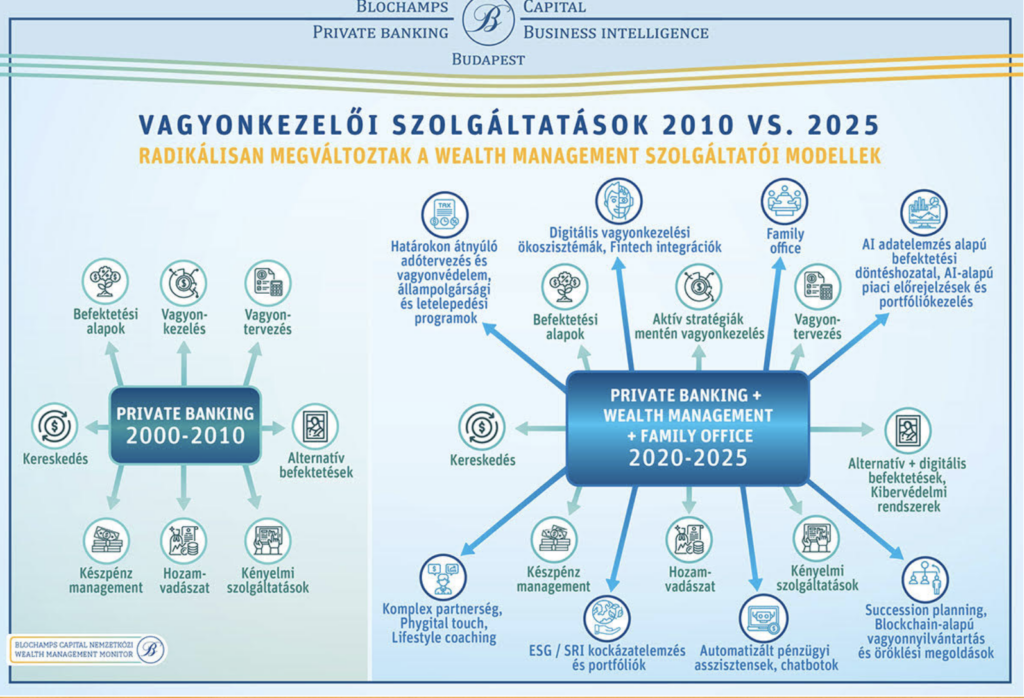Millionaires may become uncertain – now it will be decided whether the domestic private banking sector can keep them
The changing regulatory environment and rapidly changing expectations can seriously insecure many Hungarian private banking clients. If they do not receive unique, modern, digital solutions, they may shift their assets abroad. At stake are 50,000 clients and 15,000 billion forints of managed assets. According to Blochamps Capital, the future of the domestic market lies in a hybrid model of personalization and digitalization.

The wealth management industry is undergoing radical transformation, and private banking service providers must adapt to the challenges of the digital and regulatory environment in addition to vibrant client demands faster than ever. According to István Karagich, CEO of Blochamps Capital, the leading consulting firm for domestic private banks, the Hungarian private banking market leader, the combined exploitation of the unique characteristics of the Hungarian market – its small size, the strong demand for personalization by clients, and the scalable solutions offered by digitalization – may be the key to long-term competitiveness.
“We do not have to decide whether a mall or a marketplace should be the private banking service model of the future – but how we can operate both at the same time. In the domestic market, there is still a strong demand for personalized, people-centered advice, while clients expect global-level digital convenience, transparency and cost-effectiveness,” said István Karagich.
The need for change is not theoretical: a significant part of the private banking clientele may slowly become uncertain – partly due to the rapidly changing, unpredictable regulatory environment. If Hungarian service providers cannot offer attractive, well-structured solutions that are not available elsewhere, clients will vote with their feet: they will take part of their capital to foreign banks or fintech service providers, or look for other asset protection solutions. The future belongs to open, yet personal service – for which the development of hybrid operations is essential. development, which provides both a deep human professional connection and technological convenience.
Meanwhile, the attitude of the private banking clientele is also changing significantly. Clients with a net worth of hundreds of millions are typically first-generation wealth builders who approach their finances with a business approach and choose a service provider not with inherited trust, but with a conscious system of expectations. However, for the new wealthy, speed, flexibility, transparent fee structure, and digital accessibility are more important than relationship building – in their absence, they are open not only to foreign service providers, but also to new fintech platforms.
The latest analysis of Blochamps Capital’s international Wealth Management Monitor states that the classic private banking model of the 2010s has become outdated. The offering based on the “investment fund & wealth advice” duo is no longer sufficient: in 2025, wealth management will have to include digital ecosystems, artificial intelligence-based forecasts, ESG aspects, even blockchain-based inheritance plans, management of family wealth structures and global legal and tax support. The complexity of services and the diversification of client needs are increasingly driving the sector towards Wealth Management + Family Office.
Related news
State support scheme
🎧 Hallgasd a cikket: Lejátszás Szünet Folytatás Leállítás Nyelv: Auto…
Read more >Related news
(HU) Átadták a SIRHA Budapest 2026 Innovációs Termékverseny díjait
🎧 Hallgasd a cikket: Lejátszás Szünet Folytatás Leállítás Nyelv: Auto…
Read more >HELL CITY has arrived, led by Michele Morrone
🎧 Hallgasd a cikket: Lejátszás Szünet Folytatás Leállítás Nyelv: Auto…
Read more >








